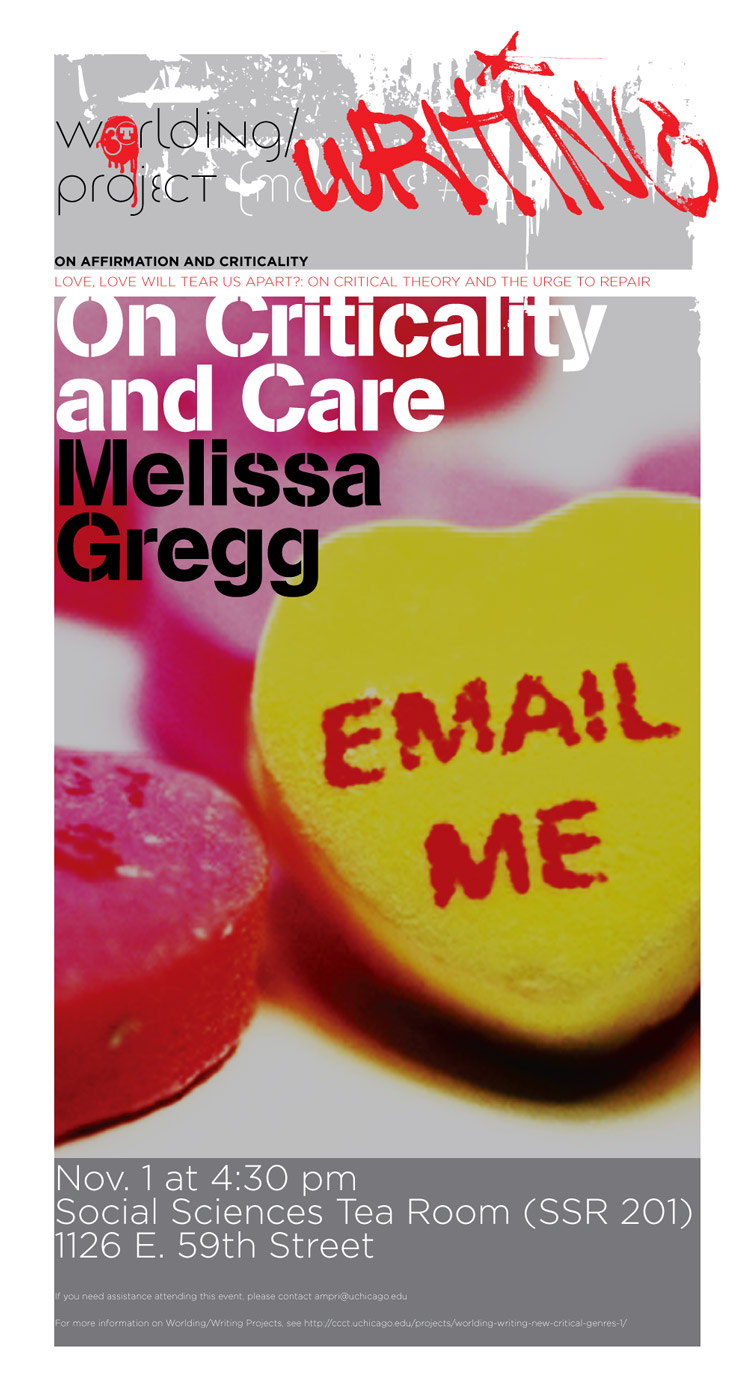This talk will address the way in which online media transform traditional avenues for intimacy in at least two crucial ways: in the preference for surface (brevity) over depth (length) in self-broadcasts and in the capacity to project oneself beyond immediate physical surroundings. As we enter a third wave of pervasive, social computing, the affective qualities of network culture include a host of ‘ambient’ relationships that suggest new communities of participation, pleasure, witnessing, and care. The significance of this everyday virtual companionship requires ongoing emphasis in light of broader conditions that place limits on normative aspiration.
This talk is part of our year-long series “On Affirmation and Criticality.” It is the third event in the series’ first segment: “Love, Love Will Tear Us Apart?: On Critical Theory and The Urge to Repair.” This series will look seriously at the relation of the critical to the affirmative by way of idioms of love, sex, and care. Its speakers will address and reflectively perform in relation to genres of critical theory and politicized ideas of attachment. Other speakers include Michael Hardt (on love and the commons as political concepts); Ghassan Hage (on domestication as the dominant mode of being in modernity); and Lee Edelman and Lauren Berlant (on love, theory, and negativity).
Melissa Gregg is a Senior Lecturer in the Department of Gender and Cultural Studies at the University of Sydney. Her research uses empirical methods, popular media analysis, and critical theory to explain changing labor conditions in post-Fordist work cultures. Using a range of feminist cultural studies techniques—textual analysis, online, and offline ethnography, visual empiricism, and fieldwork—Gregg’s research draws attention to the affective dimensions of everyday life. She is the author of Cultural Studies’ Affective Voices (2006), The Affect Theory Reader (co-edited with Gregory J. Seigworth, 2010), and, most recently, of Work’s Intimacy (2011).

